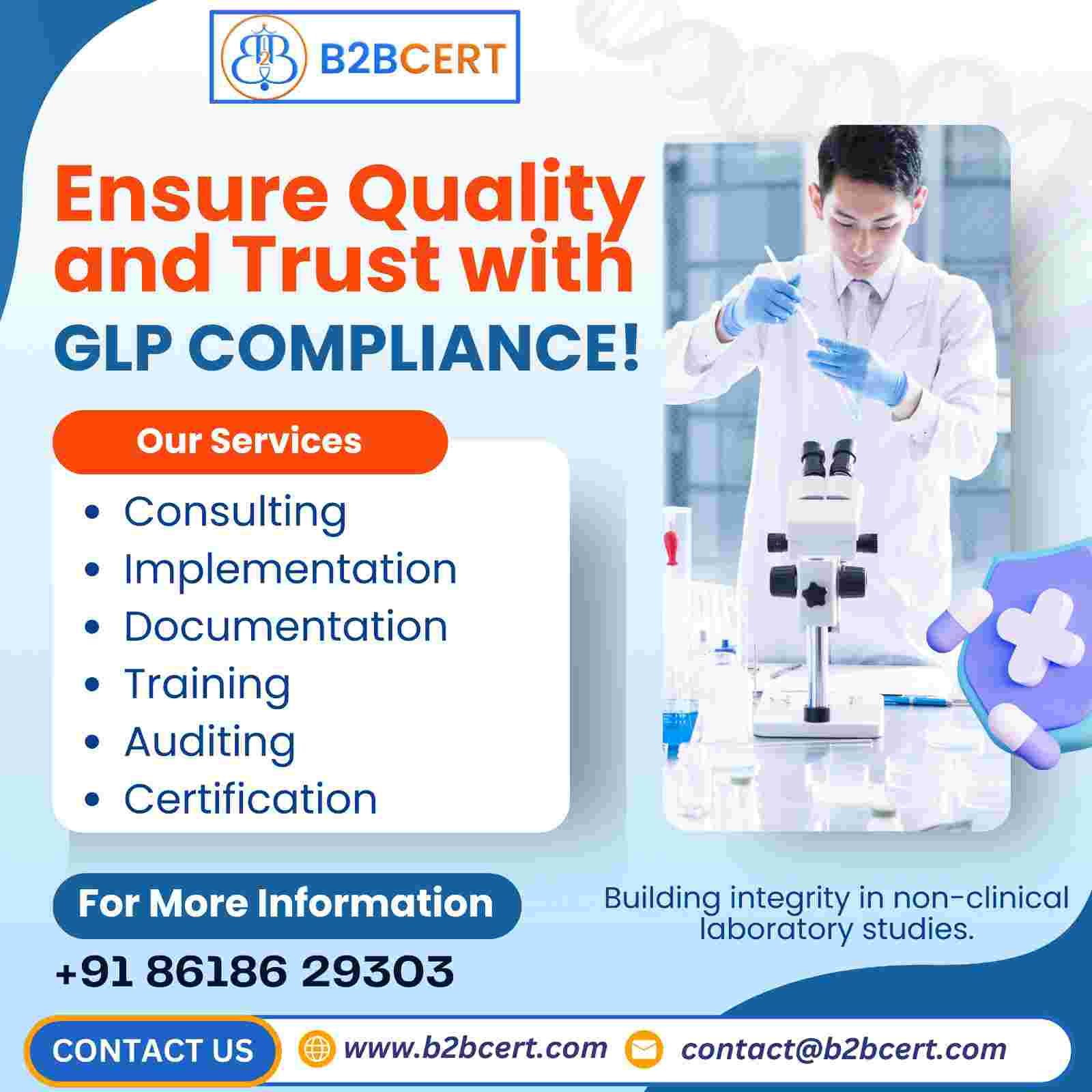In a Good Laboratory Practice (GLP)-compliant laboratory, the integrity, accuracy, and traceability of data are paramount. GLP ensures that laboratories follow standardized procedures, maintain data reliability, and produce results that regulatory bodies can trust. For organizations in India looking to adhere to international standards, acquiring GLP Certification in Bangalore is a critical step. This blog explores how data is recorded and managed under GLP and provides examples to illustrate each stage.
What is GLP and Why Is It Important?
Good Laboratory Practice (GLP) is a quality system concerned with the organizational process and conditions under which non-clinical health and environmental safety studies are planned, performed, monitored, recorded, archived, and reported. It is enforced by regulatory bodies such as the OECD and the FDA.
Laboratories often seek help from professional GLP Consultants in Bangalore to align their practices with GLP standards and ensure successful certification.
1. Data Recording in a GLP-Compliant Laboratory
Under GLP, data recording is not just about writing results; it is a meticulous process involving:
a. Real-Time Documentation
All observations and test results must be recorded immediately as they occur. This minimizes the risk of errors and data manipulation.
Example:
A technician measuring the pH of a chemical solution writes down the pH value (e.g., 6.8) directly into the lab notebook at the time of measurement, including the date, time, and initials.
b. Use of Bound Logbooks or Electronic Systems
GLP requires the use of bound logbooks or validated electronic systems to ensure data cannot be altered post-entry without a trace.
Example:
In a GLP in Bangalore, a digital balance used for weighing samples is connected to a Laboratory Information Management System (LIMS). The weight data is automatically logged into the system with a timestamp and user ID, reducing manual error.
c. Cross-Checking and Review
Data entries are reviewed and verified by a second qualified person. Corrections must not obscure original entries.
Example:
If a researcher mistakenly records “10.3 mg” instead of “13.0 mg”, the original data is struck through with a single line, and the correct value is written alongside with the date, reason for correction, and initials.
2. Data Management in a GLP-Compliant Laboratory
Once recorded, managing data involves secure storage, regular audits, and easy retrieval mechanisms.
a. Data Archiving
Raw data, reports, and relevant documentation must be archived securely for a minimum period, typically ten years, depending on local regulations.
Example:
Paper-based raw data from a toxicology study is scanned and stored in both physical (fireproof cabinets) and digital formats in a restricted-access archive room.
b. Data Traceability
Every piece of data must be traceable to its origin—who created it, when, under what conditions, and using which instrument.
Example:
A sample ID logged in the system links to all related metadata: source, preparation date, analyst, equipment used, and test results—providing a complete audit trail.
c. Backup and Recovery
GLP mandates regular data backups and disaster recovery plans to prevent data loss.
Example:
A GLP-compliant lab uses cloud storage that automatically backs up all digital records nightly, with weekly offsite backups to ensure data security and integrity.
The Role of GLP Services in Bangalore
For laboratories aiming to adopt GLP, availing professional GLP Services in Bangalore is essential. These services assist in infrastructure setup, documentation systems, staff training, and internal audits—preparing the lab for GLP certification. With the support of experienced GLP consultants, labs can ensure compliance with national and international regulations, significantly boosting their credibility.
Conclusion
Data recording and management in a GLP-compliant laboratory is a systematic, transparent, and traceable process. It requires rigorous documentation, regular reviews, and robust storage and retrieval systems. For laboratories in Bangalore seeking to meet global standards, partnering with GLP Consultants in Bangalore and securing GLP Certification in Bangalore can streamline compliance and foster trust in their research outputs.
By adopting GLP principles, labs not only comply with regulatory mandates but also demonstrate a strong commitment to scientific integrity and quality assurance.




